- Home
- Amy Harmon
The Queen and the Cure
The Queen and the Cure Read online
* * *
The Queen and the Cure
The Bird and the Sword Chronicles
Copyright © 2017 by Amy Harmon
Editing by Karey White
Cover Design by Hang Le (http://www.byhangle.com/)
Formatting by JT Formatting (https://www.facebook.com/JTFormatting/)
Map Design by Maxime Plasse (http://www.maxsmaps.com/)
Smashwords Edition
ISBN-13:
All rights reserved.
Without limiting the rights under copyright reserved above, no part of this publication may be reproduced, stored in or introduced into a retrieval system, or transmitted, in any form, or by any means (electronic, mechanical, photocopying, recording, or otherwise) without the prior written permission of both the copyright owner and the above publisher of this book.
This is a work of fiction. Names, characters, places, brands, media, and incidents are either the product of the author's imagination or are used fictitiously. The author acknowledges the trademarked status and trademark owners of various products, bands, and/or restaurants referenced in this work of fiction, which have been used without permission. The publication/use of these trademarks is not authorized, associated with, or sponsored by the trademark owners.
Smashwords Edition License Notes
This ebook is licensed for your personal enjoyment only. This ebook may not be re-sold or given away to other people. If you would like to share this book with another person, please purchase an additional copy for each recipient. If you’re reading this book and did not purchase it, or it was not purchased for your use only, then please return to your favorite ebook retailer and purchase your own copy. Thank you for respecting the hard work of this author.
For the healers
***
Table of Contents
Title Page
The Land of Jeru
Pronunciation Guide
Epigraph
Prologue
Chapter One
Chapter Two
Chapter Three
Chapter Four
Chapter Five
Chapter Six
Chapter Seven
Chapter Eight
Chapter Nine
Chapter Ten
Chapter Eleven
Chapter Twelve
Chapter Thirteen
Chapter Fourteen
Chapter Fifteen
Chapter Sixteen
Chapter Seventeen
Chapter Eighteen
Chapter Nineteen
Chapter Twenty
Chapter Twenty-One
Chapter Twenty-Two
Chapter Twenty-Three
Epilogue
Acknowledgments
About the Author
Other Titles
***
Aren – AIR uhn
Ariel – AH ree el
Bin Dar – BIN Dahr
Brisson – BRI suhn
Caarn – CAHRN
Corvar – COHR vahr
Corvyn – COHR vin
Degn – dayn
Dendar – DEN dahr
Enoch – EE nuhk
Firi – FEAR ee
Isak – EYE zuk
Janda – JAHN duh
Jeru – JEH roo
Jerick – JEH rik
Jedah – JAY duh
Jeruvian – jeh ROO vee un
Jyraen – jeh RAE un
Kjell – Kel
Kilmorda – Kil MOHR duh
Koorah – KOOR uh
Lark – Lahrk
Lucian – LOO shun
Meshara – Meh SHAH ruh
Padrig – PA drig
Quondoon – qwahn DOON
Saoirse – SEER shuh
Solemn – SAW lem
Sasha – SAW shuh
Tiras – TEER us
Volgar – VOLH gahr
Zoltev – ZOHL tehv
***
***
Light glanced off of the empty throne and streaked across the wide room, peeking around corners and climbing the walls. Silence was the only occupant. Something fluttered overhead, breaking the stillness. Vines with leaves so emerald they appeared black in the shadows, wrapped their way around the rocks and past the windows, filtering the light and casting the interior in a wash of green. The castle was holding her breath. She’d been holding her breath for so long.
There were no animals inside the castle walls—maybe a small mouse or a bird in the forest of trees—but no grazing cattle or galloping horses. No dogs barked, no lazy cats sunned themselves on the rock walls. No pigs in the sty or chickens in the coops. Nothing that required care, nothing that needed tending to. But the spiders had been busy. Webs clung and quivered, draped over the portraits and the sconces on the walls, swinging from the chandeliers and tapestries, creating an illusion of lace on every surface. Goblets and silver saucers were set upon the long banquet table, the platters and bowls filled with empty expectations making a long, neat row down the center.
Beyond the castle yard, rows of trees, one beside the other, the branches intertwining and their trunks pressed together like lovers in the dark, stretched in an impenetrable ring around the castle, a forest of silent watchers, living but lost in timelessness. Trees of every kind, interspersed and interwoven, created a dense wall encircling the castle. Some trees grew only as high as a tall man while others soared into the sky, their trunks wider than a circle of six maidens with their hands joined in a May Day dance. Upon closer inspection, some of the trees had faces, a series of hollows and rises that gave each one personality and character. One had the look of a dozing giant, one the appearance of a child at play.
The trees were not aware of the passing of days or the turn of the seasons. They simply slept, locked inside where nothing could touch them or take them away. No one had thought to wake them and tell them the terror had passed.
***
“Everything has an origin story. Every place. Every person. We come from the womb of a woman, who came from the womb of a woman, who came from the womb of a woman. We inherit gifts and weakness, we are born in triumph and strife, we are swaddled in kindness or indifference, and we are made to learn and walk among others who have their own origin stories, their own burdens, and their own history.”
Sasha’s voice was low and lilting as she bathed the feverish head of her aging master, telling her stories that calmed and comforted, distracting the old woman from her pain and her fear. Death hovered around the small stone house, scratching at the door, peeping through the windows, impatient to make its claim.
“What is your origin story, Sasha?” the old woman pleaded, a question she’d asked a hundred times.
“I don’t know mine, Mistress Mina,” Sasha soothed.
“You must go and find it,” the old woman insisted weakly.
“Go where?” Sasha asked patiently. The conversation had become almost a ritual.
“Your gift will lead you.”
“Why do you insist on calling it a gift?” Sasha pressed.
Mina sighed heavily. “You know why. You know the legend. Tell me the story again.”
Sasha did not sigh, though the story that filled her head was one she’d told so many times it seemed rote and tired, devoid of magic or truth, though her mistress insisted it was the origin story of all mankind, even Sasha.
“With words, God created worlds,” Sasha began, and the old woman relaxed, her eyeballs quivering, seeing the story behind her lids. Sasha spoke softly, soothingly, but felt little solace herself. “With words, He created light and dark, water and air, plants and trees, birds and beasts, and from the dust and the dirt of those worlds, He created children, two sons and two daughters, forming them in his image and breath
ing life into their bodies of clay,” she recited obediently.
“That’s right,” Mina murmured, nodding. “You tell the story so well. Tell me more.”
“In the beginning, the Creator gave each child a word, a powerful word, which called down a special ability, a precious gift to guide them in their journey through their world. One son was given the word change, which gifted him the ability to transform himself into the beasts of the forest or the creatures of the air. One daughter was given the word spin, for she could spin all manner of things into gold. The grass, the leaves, a strand of her hair. The word heal was given to another son, to cure illness and injury among his brothers and sisters. Another daughter was given the word tell, and she could predict what was to come. Some said she could even shape the future with the power of her words.
“The Spinner, the Changer, the Healer, and the Teller lived long and had many children of their own, but even with blessed words and magnificent abilities, life in the world was dangerous and difficult. Oftentimes, grass was more useful than gold. Man was more desirable than a beast. Chance was more seductive than knowledge, and eternal life was completely meaningless without love.”
“Completely meaningless,” the old woman repeated, and began to weep, as if the ancient account underscored her own life. But instead of urging the younger woman to continue with the retelling, she picked up the story on her own, weakly tiptoeing through the tale, touching on the parts that meant the most to her.
When the old one’s voice finally trailed off, her tears drying on her cheeks, Sasha rose and emptied the basin of lukewarm water outside of the earthen hut, pulling the thick flaps over the opening and leaving the ties loose so she could return quickly if the old woman cried out.
But the origin story continued on in her head—the Changer, the Spinner, the Healer, and the Teller, and the children that came after them. Hundreds of years. Generation upon generation, gifts celebrated and revered, then squandered and abused, and finally buried and denied as the only Gifted who remained became hated and hissed at. One by one, the Tellers, the Healers, the Changers, and the Spinners were destroyed. The forces of the king cut off the Spinners’ hands. They burned the Tellers at the stake. They hunted the Changers like the animals they resembled and stoned the Healers in the village squares, until those with special gifts—any gift—were afraid of their abilities and hid their talents from each other.
The village of Solemn was quiet, the air scorched of light or life, the heat of the day slumbering with the stricken hamlet. A sob suddenly pierced the air, and Sasha braced herself for the name that rose on the scream. It came, the identification making her lips tremble and her eyes smart. Another child had died. Edwin. The little boy with the bent leg.
The weakest were being taken first.
Sasha moved away from the rows of huts and the more stately structures of the elders, working her way on weary legs toward the water that flowed through the canyons. It wasn’t as close as the river that came from the east, but she didn’t think it would make her sick the way the water from the east had made Mina sick. When Mina had started to decline, Sasha had gone to the kindest of the elders, Mina’s brother, and told him to warn the people not to drink the water, that the water carried something dark. He counseled with the other elders. None of them were ill, and they’d been drinking from the eastern river for a long time. They said she was mad and she would frighten the people. They told her to hold her tongue or she would lose it.
Not long ago, there had been a great battle in the land of Jeru. Wrongs righted. Oppression lifted. But little had changed in the villages of Quondoon. The merchants came to Solemn from Jeru City bearing wares and tales, and Sasha’s master had sat with the elders, hearing the stories of the powerful King Tiras who could fly like a bird and who had done away with the old laws. Now the Gifted were free to roam and do their worst, the elders said, though no one had ever seen a Spinner or a Healer in Solemn. There were Changers in Doha, the village nearest them—an old man and a child, though they could only partially change, sprouting wings or powerful haunches at will, but unable to completely transform. Sasha had never seen them, but the elders were dismissive, laughing at the oddity, claiming it more a curse than a gift. The merchants brought more talk from Bin Dar—the land to the north—of great birdmen who made nests and ate human flesh, but no one from Solemn had seen them either. Sasha was not a Changer, a Spinner, a Healer, or a Teller. She was something else entirely. No one talked about Sasha, but their silence did not equate to safety, and Sasha had no confidence in a king so far away or laws that were supposed to protect everyone. Even slaves.
He had a face that she wouldn’t forget and one she couldn’t remember. She shouldn’t have been able to see him so clearly. It was night and he hovered above her, shadowed beneath a half-eaten moon. His eyes were like the sea, blue but not untroubled, and his mouth was her anchor, making promises that kept her from floating away. His hands were gentle, his words were rough, and when he asked her to come with him, she did, rising from her body and becoming someone new.
But they still found her.
Figures moved in and out of the mist, shifting and searching. People screamed and shadows flew through the air, diving and swooping. She hid, flattened against the ground, her face in the dirt. She tried to draw breath but choked and coughed as she breathed in bits of earth. She covered her face with her scarf to strain the air and crawled forward. There was no sound. She tried to shout and felt the shape of his name on her lips, a word she couldn’t hear. A word she didn’t know.
Whop, whop, whop.
The sound echoed in her head and her chest, and the world of hidden figures and flying death whirled away as the beating grew louder.
She’d fallen asleep too close to the fire.
Again.
Her hair and face would be streaked with soot, and she’d drawn ash into her lungs. The house was too hot for a fire, but she hadn’t been able to keep Mina warm, and the coals were slower to die than the old woman had been. Her heart was pounding and her throat was raw. The slapping sound became sharper, heavier, and it left her head and shook the air with the sound of a thousand wings.
“Sasha! Let me in. Untie the flaps.”
Sasha rubbed at her eyes and rose unsteadily to her feet, drunk on the old dream. She was weary and her cheeks burned. She’d been too many days at her master’s bedside, tending the old woman until, like the dream, Mina had drifted away. She’d mourned alone, setting up a call into the night that had been met with moans and little more. Mina’s brother had come with the elders only hours before. They had taken the body of her master away and left her behind.
“Sasha! Let me in!”
“Maeve! You’ll wake the whole village,” she warned, stumbling to the door and unknotting the ties with weary hands. The girl, small and dark like many of the people of Quondoon, tumbled through the opening and fell into Sasha’s arms.
“Sasha. Run. Go now! They’re coming for you,” Maeve gasped. “Mina can’t protect you anymore. They’re coming. I heard them. They’re scared, and they blame you.”
“For what?” Sasha cried. But she knew. Maeve knew too, and didn’t waste time with unnecessary words, grabbing at her hand and pulling her forward.
“Where will I go?
“You’re free. Go wherever you wish.”
“But this is my home.”
“Not anymore. Mina is dead. And you soon will be if you don’t leave now!”
“I’m not properly dressed.” Sasha reached frantically for her head covering, needing to shield her pale skin and her bright hair. Her shoes were outside the door.
“You’ve no time!”
Then Sasha heard it. Felt it. And she recognized it. She’d seen this moment. The sensation of loss and . . . relief washed over her. It had come. There was always relief when visions became truth. She didn’t know why.
From far off there were shouts and cries, as if the village was under attack. But there were no pillag
ers on the borders, seeking entry. There were no dragons in the air, breaching the borders of the city of Solemn. The enemy was within the gates.
The crescent moon, gloating and glowing in its safety above them, made their night travels across the plain a cold pleasure. The sky was devoid of clouds and littered with shards of stars. The cliffs rose up like marooned ships, their ragged stone masts pointing at the star-filled heavens, and their horses began to descend, winding their way downward into Solemn on the far edges of Quondoon. Kjell of Jeru, Captain of the King’s Guard, had only been there once before, but he remembered the simple attire of the desert dwellers, their covered heads and their quiet ways.
They’d seen no sign of the Volgar—the monstrous birdmen—in the last few days, no nests or carcasses, no stench or even stray feathers, and he wondered again at the hysterical reports in the villages on the border of Bin Dar about devastation in Solemn. But there was something in the air, and his horse, Lucian, was restless, chuffing and flighty, resisting the descent and the press forward.
It would be so much easier if he had Queen Lark’s ability to command and destroy. Instead, he and an elite group of warriors had traveled through the provinces of Jeru, north to Firi and west to Bin Dar, east to Bilwick and back to Jeru City, hunting the Volgar the hard way, at the end of a blade. He’d spent the last two years on the back of his horse, destroying what was left of the winged creatures that had once laid waste to vast provinces and almost decimated an entire kingdom.
When he’d received word that there were flocks of the birdmen in the cliffs of Quondoon, he’d left Jeru City again, oddly grateful there was something to do. Tiras, his half-brother and the king of Jeru, ruled ably, finally freed from the affliction that had kept Kjell so close for so long. They’d rarely been apart since the day Tiras ascended the throne in their father’s place, young and Gifted, with no one else to turn to but his illegitimate older brother. But Tiras didn’t need Kjell anymore. Not in the same way.

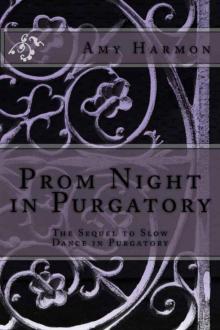 Prom Night in Purgatory
Prom Night in Purgatory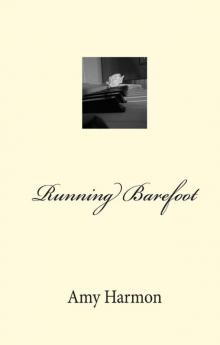 Running Barefoot
Running Barefoot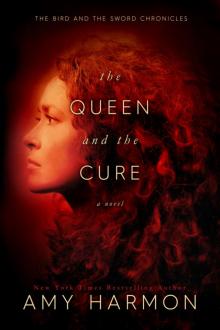 The Queen and the Cure
The Queen and the Cure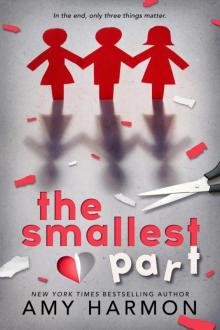 The Smallest Part
The Smallest Part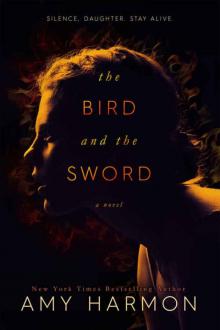 The Bird and the Sword
The Bird and the Sword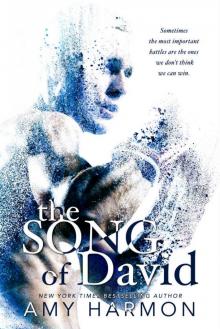 The Song of David
The Song of David Infinity + One
Infinity + One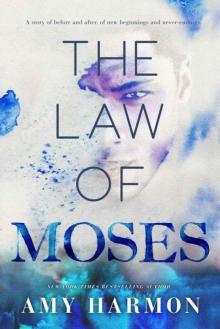 The Law of Moses
The Law of Moses A Different Blue
A Different Blue From Sand and Ash
From Sand and Ash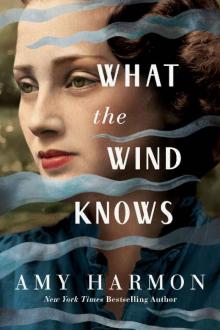 What the Wind Knows
What the Wind Knows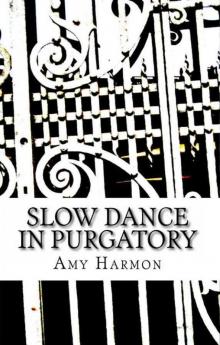 Slow Dance in Purgatory
Slow Dance in Purgatory Romance Through the Ages
Romance Through the Ages